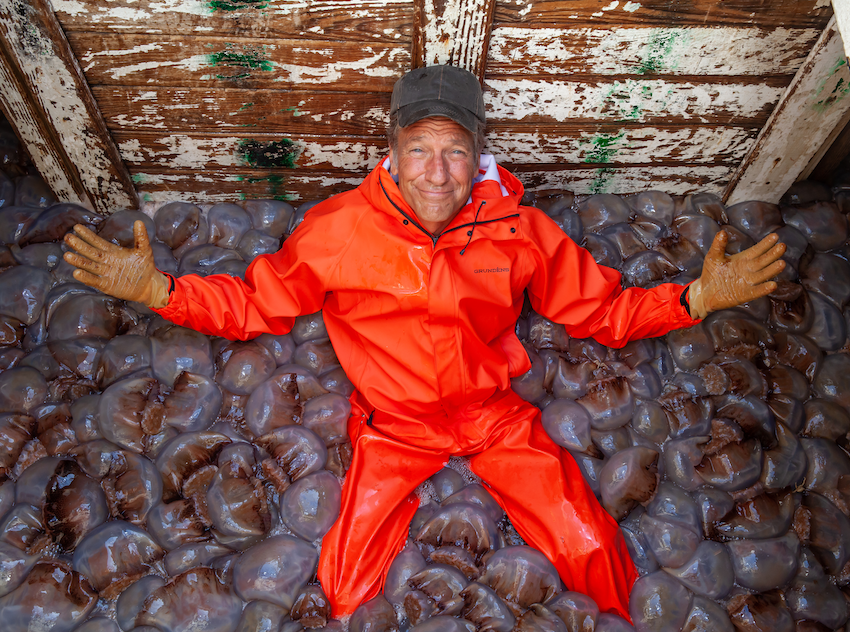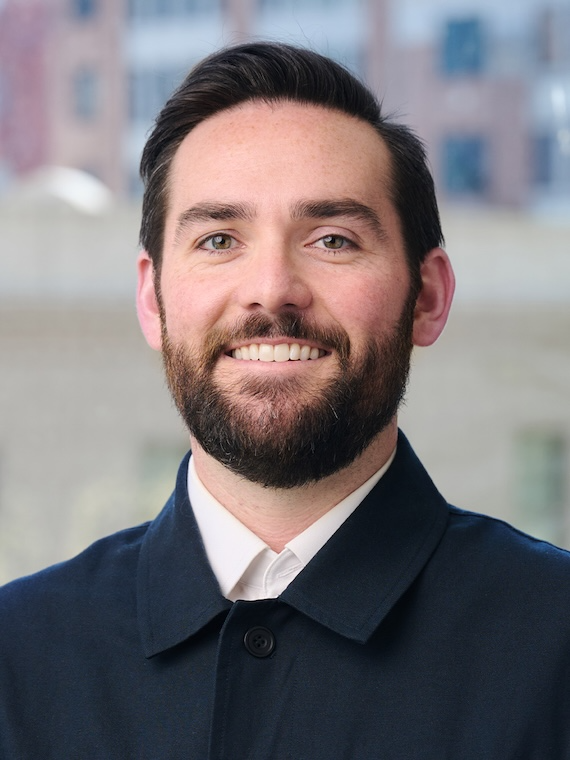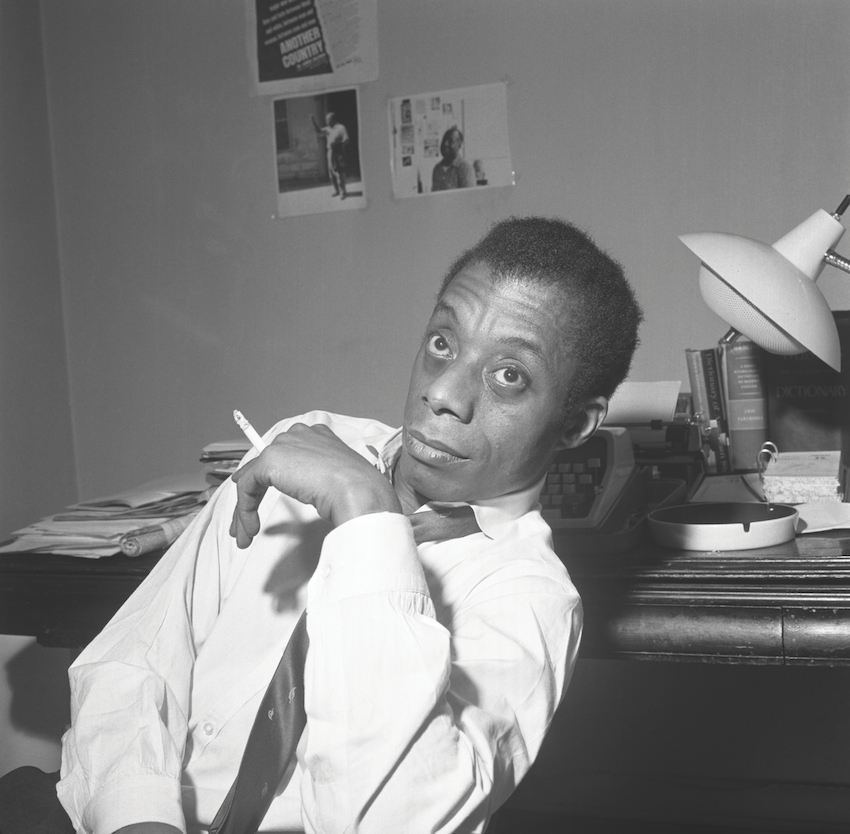The star of the hit series “Dirty Jobs” wants to restore a sense of wonder for the work of the skilled trades. He talks with Brunswick’s Hunter Hawkins.
When it debuted on the Discovery Channel in 2005, Mike Rowe’s Dirty Jobs had no parallel on cable TV. In each episode, it celebrated in gory detail the wide variety of work not normally publicized—cleaning sewers, collecting bat guano, wielding knives at a fish factory. For providing glimpses into what Discovery hailed as “downright nasty” work, Dirty Jobs became a cable television ratings juggernaut and a critical triumph. It was nominated for an Emmy Award for best reality show three times in 2008, 2009 and 2010.
Since then, Rowe has hosted many such shows, on many channels, each highlighting the dignity of working people. His podcast, “The Way I Heard It,” has been downloaded some 300 million times. Rowe has turned material from the podcast into a book of the same name and has narrated dozens of series and documentaries. He is also founder and CEO of mikeroweWORKS Foundation, which has awarded nearly $12 million in work ethic scholarships and led a national effort to reintroduce shop class into high schools.
At a time of polarization, Rowe’s popularity transcends politics, class and education. In a conversation with Brunswick’s Hunter Hawkins, Rowe shines an admiring light on a hard-working culture that, among countless other things, keeps the lights on.
Who do you see as your audience?
When Dirty Jobs took off, I figured the audience looked a lot like the people we featured on the show. Farmers, miners, plumbers, welders, craftsmen, tradespeople and so forth. But then, as the first season was coming to an end, I was doing an appearance at a Lowe’s in Woodstock, Georgia, on a Saturday, and I had agreed to stick around for an hour to take some photos and sign some headshots for customers. Well, dozens of people came out to say hello. And then hundreds. Before long, there were a thousand people in a line that stretched down and around the block and out of sight.
I was blown away. There were plenty of blue-collar types there, but I was really struck by the number of housewives, kids, grandparents and white-collar workers who showed up. It was very humbling. When I ran out of headshots, people went inside and started buying toilet seats and plungers. It’s a strange thing to spend an afternoon signing your name on toilet seats, as people talked about what they did for a living. That’s when I realized Dirty Jobs was about something more than exploding toilets, and misadventures in animal husbandry, and all the other spectacular elements that sucked people in. It was about the importance and the dignity of work. All work. That was also the day I started thinking about my audience as my boss. Which is probably why I sat there in Woodstock for seven hours on a Saturday afternoon, signing plungers and toilet seats.
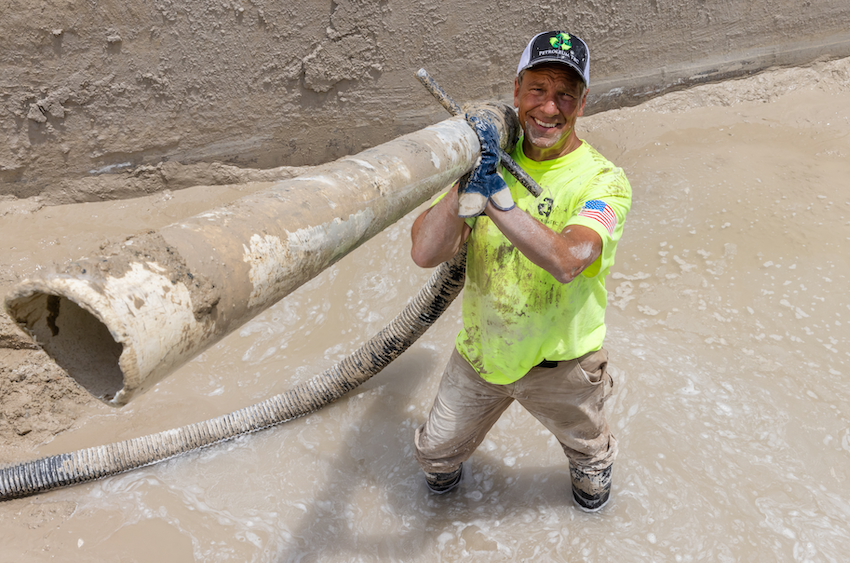
If you were speaking at the World Economic Forum in Davos, what would you say?
First, I would ask who invited me and make sure there hadn’t been some terrible mistake. Then I would probably share some of the lessons I’ve learned from the dirty jobbers I’ve met over the years. In particular, I might talk to them about a special we did called, “Brown Before Green,” which featured an alternative take on the Green Movement, and “Safety Third,” a contrarian look at the whole “Safety First” approach to occupational safety.
Then, if I hadn’t been booed off the stage, I’d talk to them about the enormous skills gap that’s opened up in America, and the pressing need to close it. I’d tell them about the aging workforce, and the undeniable fact that for every five tradespeople who retire, two replace them. I’d also point out that if President Trump succeeds in creating millions of new jobs with a “manufacturing renaissance” (and I hope he does), he’ll need to figure out how to attract workers to fill those opportunities. Currently, there are 600,000 open jobs in the manufacturing sector, begging the obvious question—where will the workers come from? This was the same problem President Obama encountered in 2009 with his promise to create 3 million “shovel ready” jobs. Those promises only work with a workforce that’s enthused about the prospect of picking up a shovel. Finally, I would tell the Davos crowd about the remarkable success we’ve had with our work ethic scholarship program and invite them to donate generously. Then, I’d try to bum a ride home on somebody’s private jet.
Tell us about your scholarships.
The mikeroweWORKS Foundation awards work ethic scholarships to people who want to learn a skill that doesn’t require a four-year degree. Welders, plumbers, electricians, mechanics, cosmologists—any vocation that requires the mastery of a skill that’s in demand. The application process is more involved than most other scholarship programs, because frankly, we’re not trying to help the largest number of people; we’re trying to help people with a positive attitude and a strong work ethic. And so, there are some hoops to jump through. We ask for an essay, a video and references. We insist that all applicants sign a S.W.E.A.T. Pledge—a simple promise with 12 tenets that elevate things like personal responsibility, delayed gratification, an aversion to debt and so forth. We’ve helped over 2,200 people so far, with $12 million in scholarships.
“Dirty Jobs was about something more than exploding toilets, and misadventures in animal husbandry, and all the other spectacular elements that sucked people in. It was about the importance and the dignity of work.”
You’ve talked about a “will gap.” What is that exactly?
That’s a term I made up after reading Nicholas Eberstadt’s excellent book, Men Without Work. According to Nick, there are currently 7.2 million men of prime working age who are not only not working, but they’re affirmatively not looking for work. That’s never happened before. Not in peacetime, anyway. Of greater concern, is the way these 7.2 million men are spending their idle time. According to several years of in-depth research and surveys, these men are NOT volunteering at their local church or engaged with any civic or community pursuits. They are not joining the ranks of the Kiwanis Club, or the Lions Club, or the Jaycees. According to Nick, they are spending roughly 2,000 hours on their screens, swiping and scrolling. Meanwhile, 7.6 million good jobs are wide open—most of which don’t require a four-year degree, and many of which are in manufacturing and the skilled trades. The skills gap is real, because a lot of people currently unemployed lack the necessary skills to start working tomorrow. But many also lack the will. That’s why our scholarships are rooted in work ethic.
What is the most misunderstood aspect of skilled labor?
I don’t know, but there are many, and they all emanate from a toxic mix of stigmas, stereotypes, myths and misperceptions. We have a whole generation of kids today who simply don’t believe they can make six figures working with their hands. They have no understanding that an independent electrician or plumber today can make $200,000 a year and set their own schedule. Likewise, we have a whole generation of parents who genuinely believe their kids will be doomed if they don’t get a college degree.
That’s probably the biggest reason we have such a massive skills gap today, and such outrageously high tuition at American colleges. It started when we took shop class out of high school and began promoting college as the best path for most people. Is it really any wonder why the cost of college has risen faster than the cost of energy, food, healthcare and real estate? Is it really a surprise that millions of good jobs that don’t require a degree are wide open, and that college grads are currently saddled with $1.7 trillion in student loans? The skills gap isn’t a mystery—it’s a reflection of what we value. And the sad truth is, we don’t value the skilled trades nearly as much as we should.
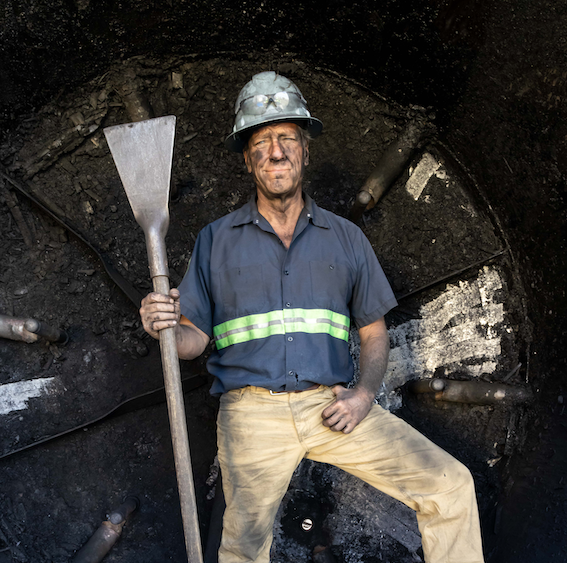
Rowe sees a “will gap” in the US—people out of work but unwilling to take on jobs in the skilled trades, with many open positions remaining unfilled as a result.
What about the skilled trades should be known or communicated to executives at companies not in the trades?
I guess I’d start by saying there’s no such thing as a company that’s not “in the trades.” Maybe not directly, but show me a company whose headquarters wasn’t built by skilled labor. Show me a corner office that wasn’t built by a tradesman. Show me an executive whose business doesn’t rely on the same basic infrastructure we all depend on. My message for white-collar executives is no different from my message to anyone who shares my addiction to hot and cold running water, affordable energy, smooth roads and indoor plumbing. Be conscious of the skilled labor that makes your business possible and be vocal about your gratitude. But understand how easy it is to get disconnected from the basics.
I grew up in a family of fisherman and tradesmen. I had a front row seat to hard work and skilled labor, and a firm understanding of where my food came from, where my energy came from and so forth. But the truth is, after 20 years in the entertainment business, I took a lot of that for granted. I had become disconnected from the miracle of our modern infrastructure, and by extension, from the people who tend to it. Dirty Jobs got me reconnected to hard work and skilled labor, but the point is, if I could become that disconnected from the people who keep the lights on and the pipes connected and the shelves stocked with food, so can corporate executives. So can CEOs. So can parents and guidance counselors. So can the whole country.
To what extent do you think this lack of gratitude has fueled the skills gap that mikeroweWORKS is trying to close?
Well, if 300 million people are not impressed with the miracle of electricity or indoor plumbing, it gets harder to hire electricians and plumbers, right? Jobs only become aspirational when “we the people” have a genuine respect for the underlying work. So yeah, I spend a lot of time talking about ways to foster a heightened appreciation for the skilled trades. But mostly, I’m focused on confronting the myths and misperceptions that surround them. And the best way to do that is to highlight real men and women who have prospered as the result of learning a trade. There’s really no substitute for hearing their stories.
“We don’t value the skilled trades nearly as much as we should.”
That’s what you did on Dirty Jobs, right? What kind of impact did that show have on magnifying the skilled trades?
Well, it definitely had an impact, but it wasn’t as targeted as my foundation’s efforts. That’s the thing about a hit TV show—you can’t control why people watch it, or what people take from it. I remember back in 2007, Dirty Jobs was the #1 show on Discovery, and I was feeling pretty great about all the positive reviews and accolades. One day, I was walking through Newark airport when I saw a guy up on a ladder working on a sprinkler. He recognized me and said, “Hey Mike! Love the show! I watch it with my wife and kids, and then we talk about all the different ways a person can make a buck if he shows up on time and works his butt off!”
I was flattered, and more convinced than ever that Dirty Jobs was making a difference. But then, not 10 seconds later, a Wall Street guy in a Brooks Brothers suit stopped me and said, “Hey Mike Rowe! Love your show! My whole family watches every Tuesday night.”
“Thanks,” I said. “I appreciate that.”
“It’s so much fun,” he said. “And I love that after each episode I can tell my kids, ‘See what happens if you don’t go to college?’”
I smiled, but in my mind I’m screaming, “No, you misunderstand! You’re missing it!”
That must have been … frustrating?
Yeah, but again, I don’t get to choose how someone responds to a TV show. My job back then was to entertain viewers, period. I guess if I wanted to hit the nail on the head, I could have made a point to tell people how much money these dirty jobbers were making, and maybe I should have. Dozens of them were millionaires, and many others owned successful small businesses. But I wasn’t comfortable pointing that out. Dirty Jobs was a comedy, and I didn’t want it to become a polemic, or an overt recruiting message. But mikeroweWORKS is different. My foundation is not subtle, and today, I interview scholarship recipients who have gone on to prosper as a result of mastering a useful skill. Their stories are very powerful and get seen by a lot of people online.
Are there other foundations working toward this same goal? Do you work or partner with any of them?
Lots. We work with a terrific program up north called Build Dakota. About six years ago, a wealthy philanthropist in South Dakota pledged $25 million to set up a scholarship program for trade schools in his state, if the governor at the time, Governor Dennis Daugaard, agreed to match it. The governor accepted the challenge, and the state launched a $50 million dollar scholarship fund to train aspiring tradespeople. Local business got involved and offered immediate employment to graduates from the program. Anyone was eligible to apply, but only if they agreed to work in South Dakota for three years after graduating.
It looked really promising, but there was a problem: South Dakota was not immune to the myths and misperceptions fueling the skills gap nationally. Traditional advertising and marketing didn’t persuade anyone to apply. So, they called mike-roweWORKS, and my business partner, Mary Sullivan, arranged a whistle stop tour with Governor Daugaard and me. We flew all over the state, visited a number of employers who were desperately seeking tradespeople, and invited the press to come and see the incredible opportunities right under their noses. They did, and the program exploded. They’re now in their seventh year, and we’re currently working with other governors in other states to implement the same model.
“We have a whole generation of parents who genuinely believe their kids will be doomed if they don’t get a college degree.”
You are starting a new show on YouTube?
Yep. It’s called People You Should Know, and it’s similar to a show I did for Facebook called Returning the Favor. We highlight people doing good work in their communities and then surprise them with an elaborate gift at the end of each episode—something that allows them to do more of what they’re already doing. Basically, it’s a light-hearted look at modest, bottom-up solutions to some of societies biggest challenges—foster care, PTSD, homelessness, illiteracy and so forth. I guess you could call it a “feel-good” show, but really, it’s the “making of a feel-good show.” And yes, we’re looking for sponsors! Know anybody?
I’ll ask around! You’ve had a pretty great run in cable and broadcast. How has the transition to the individual influencer affected you?
I’m not sure I’ve fully transitioned, as it were. Dirty Jobs and Deadliest Catch continue to air on Discovery. I’ve got a show on Fox, a show on TBN and a couple things in development that might wind up on broadcast or cable. But the writing is on the wall. The linear model is shrinking, along with budgets for the kind of content I like to produce. Luckily, my social accounts have always been closely tied to every project I’ve ever worked on, so I’m very bullish on the YouTube show. This is what I meant earlier, when I talked about my audience being my boss. Most of the ideas for Dirty Jobs came from the people who follow me on social, and those 8 million people continue to program most of my content. They’re VERY engaged, and act like a giant focus group for everything I do, including my foundation. Their support of mikeroweWORKS has been phenomenal, both financially and more importantly, helping to spread the word faster and farther than traditional media.
More from this issue
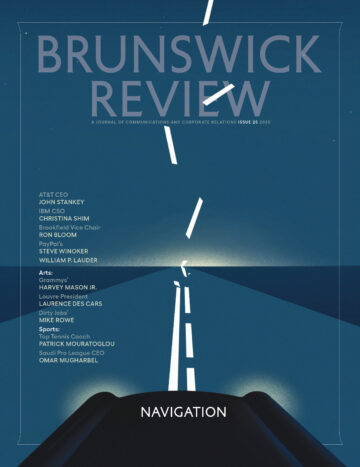
Navigation
Most read from this issue
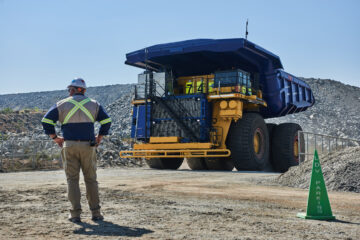
Green Hydrogen Window

